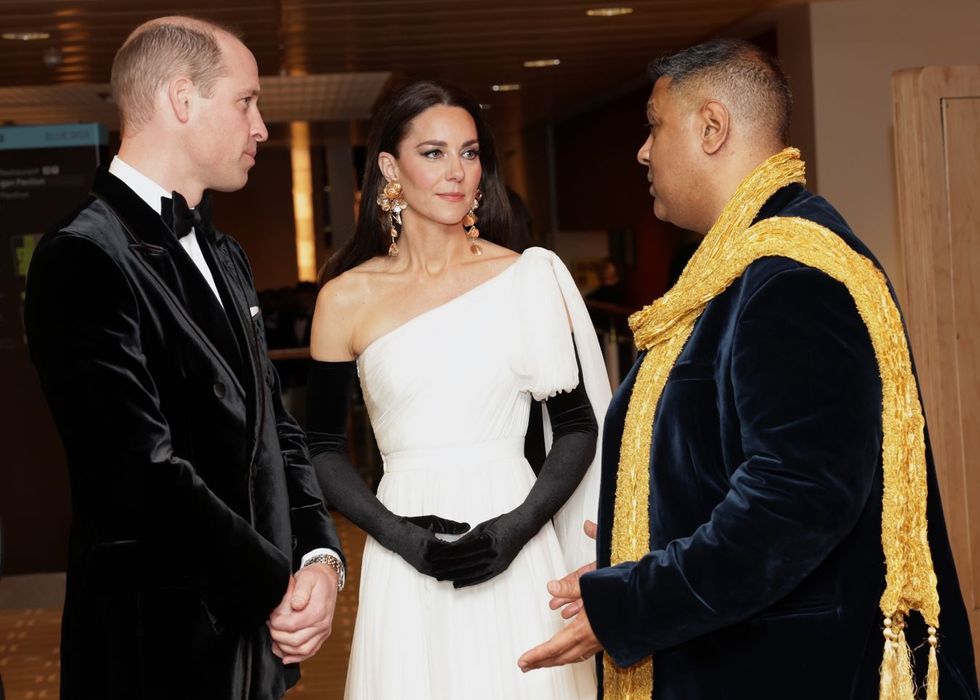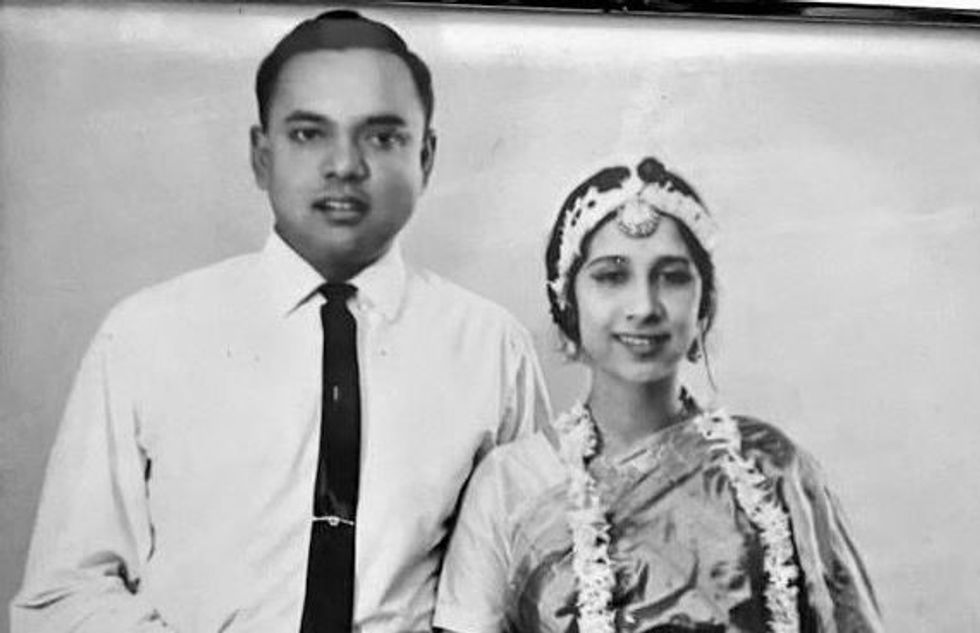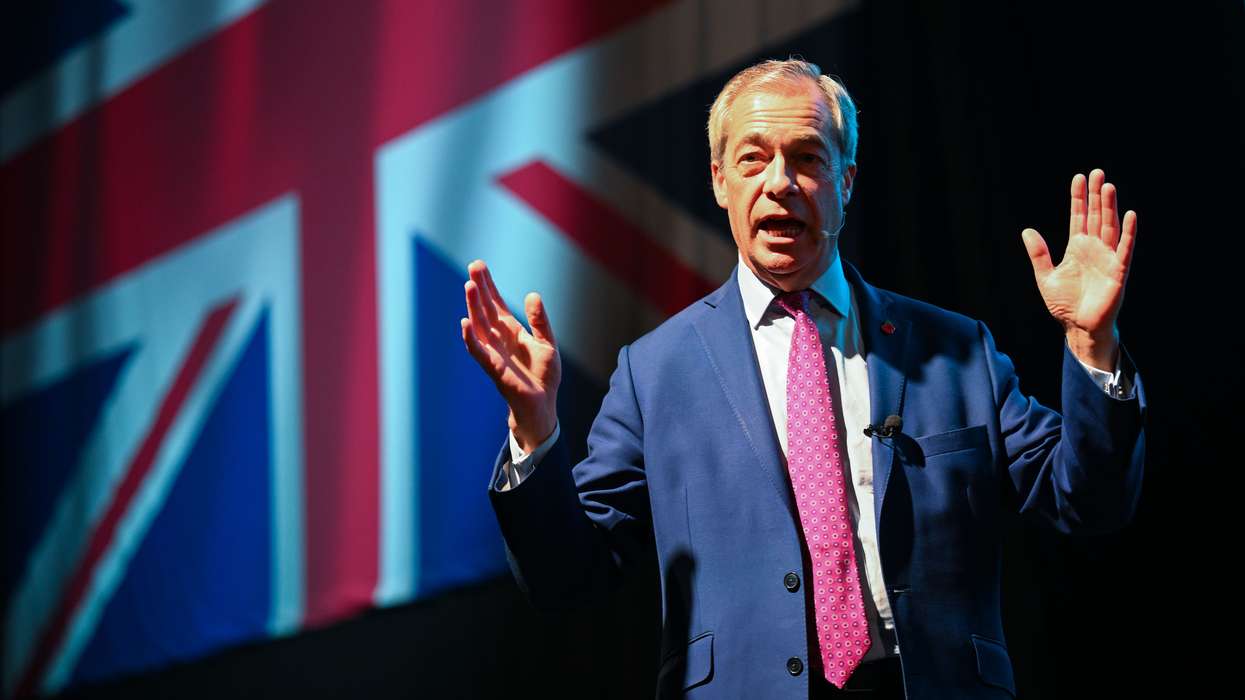KRISHNENDU MAJUMDAR has called a wrap after three years as chair of the British Academy of Film and Television Arts (Bafta), to be succeeded by his deputy, Sara Putt.
Majumdar was the first nonwhite person to occupy the post since Bafta was set up 76 years ago on April 16, 1947. It was established by a group of directors that included David Lean, Alexander Korda, Roger Manvell, Laurence Olivier, Emeric Pressburger, Michael Powell, Michael Balcon, Carol Reed and other major figures of the British film industry.
Aged 45 when he was elected, Majumdar was also one of the youngest in recent decades. He has become part of Bafta history as his portrait now hangs in the David Lean boardroom.
He was named GG2 “Man of the Year” in February 2021.
Speaking to Eastern Eye, Majumdar urged British Asian filmmakers not to restrict themselves to tackling only Asian subjects.
Asked what stories they could tell, he summed up: “Anything. That’s the point.”
A producer and director himself – he co-runs Me+You Productions with Richard Yee – he said: “I have just done a love story between two people who happen to be white. So you can do anything – the key is you shouldn’t be pigeonholed.”
He was referring to a Channel 4 TV series, Alice & Jack, starring Oscar-nominee Andrea Riseborough and Golden Globe nominated Domhnall Gleeson, that will have its premiere at the Toronto International Film Festival in September.
Earlier this year, his most recent broadcast work, I Am Ruth, won two Bafta awards – for single drama and lead actress for Kate Winslet – as well as walking away with the Royal Television Society award for lead actress.
Majumdar wants Asians to think big.
“I didn’t win a Bafta because I’m not white – hopefully it’s about the quality of the work,” he said.

“And when you look at Riz Ahmed, Michaela Coel and Steve McQueen, these people aren’t just the best non-white people. They are the best British talent on a global scale. Hopefully we’re getting to the stage where it’s accepted that there are talented people from all backgrounds.
“Yes, of course, it’s harder for some people to get acceptance or start their careers. But hopefully that is changing now. For the younger generation, it’s not going to be as hard as it was for us. We had no role models.”
He added: “When Meera Syal won the Bafta Fellowship this year, I cried when she made a speech. It was an amazing moment. Her speech was great.”

Majumdar was born in Church Village, northwest of Cardiff, in Wales, where he went to school before graduating in English and drama at Bristol University.
The last time he visited India was in the autumn of 2018 when he took back his father’s ashes to the holy city of Varanasi before going to Kolkata to meet relatives.
In 1962, his father, Dr Rupendra Kumar Majumdar, arrived from [then] Calcutta on a boat that docked in Liverpool.
“He went back in 1966 and married my mum and returned to the UK,” his son said. “He was a GP in the South Wales area and worked for the NHS for 40 years.”
His father died, aged 86, on February 15, 2017. His mother, Jharna, who had been a community link worker among Bengalis from India and Bangladesh, continues to live in South Wales. Majumdar and his elder brother, Saumendra, take it in turns to visit her. The cultural committee their parents helped to set up in 1973 to celebrate the Bengali festival of Durga Puja is still going strong. “Growing up, there was no one from the Bengali community with connections in the film or television industries,” he told Eastern Eye, emphasising, “Representation really matters.” And this is what he was trying to achieve as Bafta chair, although he has been involved with the organisation for 18 years. “I’m just a Bafta member now,” he said. “I’m not on the board, I’m not a trustee, not on any committee.
“It’s really lovely to just be a member, be supportive from the sidelines. But I’ll still do Bafta juries. And if they asked me to do any events, of course, I’m a supporter. But I’m really proud of all the work we’ve done.”
He preferred the collegiate approach: “It’s really important to say that it’s not just me. As a team we’ve made real changes to Bafta, and also the film, TV and the games industry as well, particularly in the field of representation. I’m really proud of the work that we’ve done. But that work is ongoing, it never stops. Although we’ve made great strides, there’s a huge amount still left to do.”
To make progress, “you need to have allies. If you want to create change, you need a consensus of leaders, not just one person. You need a number of people from different backgrounds as well.”
He stressed the same point that was made at Eastern Eye’s Arts Culture & Theatre Awards (ACTA) earlier this year – decision makers need to be more representative.
“There’s not enough change if you look at the TV industry. Who are the people who run TV? It’s still the same type of people, who all had the same kind of education and the same kind of upbringing. That needs to change. You need to have diversity of thought around key decision makers, the boardroom tables, the commissioners, the gatekeepers, the funders.
“It’s fine to have a few extra diverse faces on TV or in film – that’s progress, of course. But who are the storytellers? Those allowed to tell the stories need to change. And the people at the top who run the industry need to change.”
He broadened the definition of diversity: “It’s not just about gender and different ethnic groups. It’s also about people from a lower socio-economic background. And another group, completely ignored when it comes to representation, is the disabled community.”
Majumdar made the argument that when it comes to Bafta awards, these cannot go to films that have not been made. Elvis, All Quiet on the Western Front and The Banshees of Inisherin could be considered because they had been entered.
“If you don’t have diverse work to choose from, you can’t blame Bafta for not choosing it,” he said.
What was also crucial was the marketing budget allocated to promoting films. What he meant, he said, was work by ethnic minority filmmakers often did not get sufficient backing.

“The harsh economic climate means people are cutting back on (advertising and marketing) budgets. But now is the time more than ever that we need to double down on them (the progress made). We can’t lose the gains we’ve made.”
He explained how some movies that were promoted in a big way: “You see the adverts, you hear the Q&A with stars flown in from LA [Los Angeles]. You get a screening room, you get excited, and then you vote for it. But who’s paid for all that – the film distributors? A big part of the whole industry is who gets that marketing spend.
“Originally people said, ‘Well, if you only had more diverse voters, it would all be solved.’ No, it would not. Is the work being marketed?”
Majumdar’s period as chair from 2020-2023 coincided with the pandemic when cinemas were shut. Bafta has to raise all its money as it doesn’t get any government or Arts Council funding.
“Seismic changes happened,” he recalled. “Black Lives Matter happened so we had to respond. There was a huge opportunity to make some changes.”




